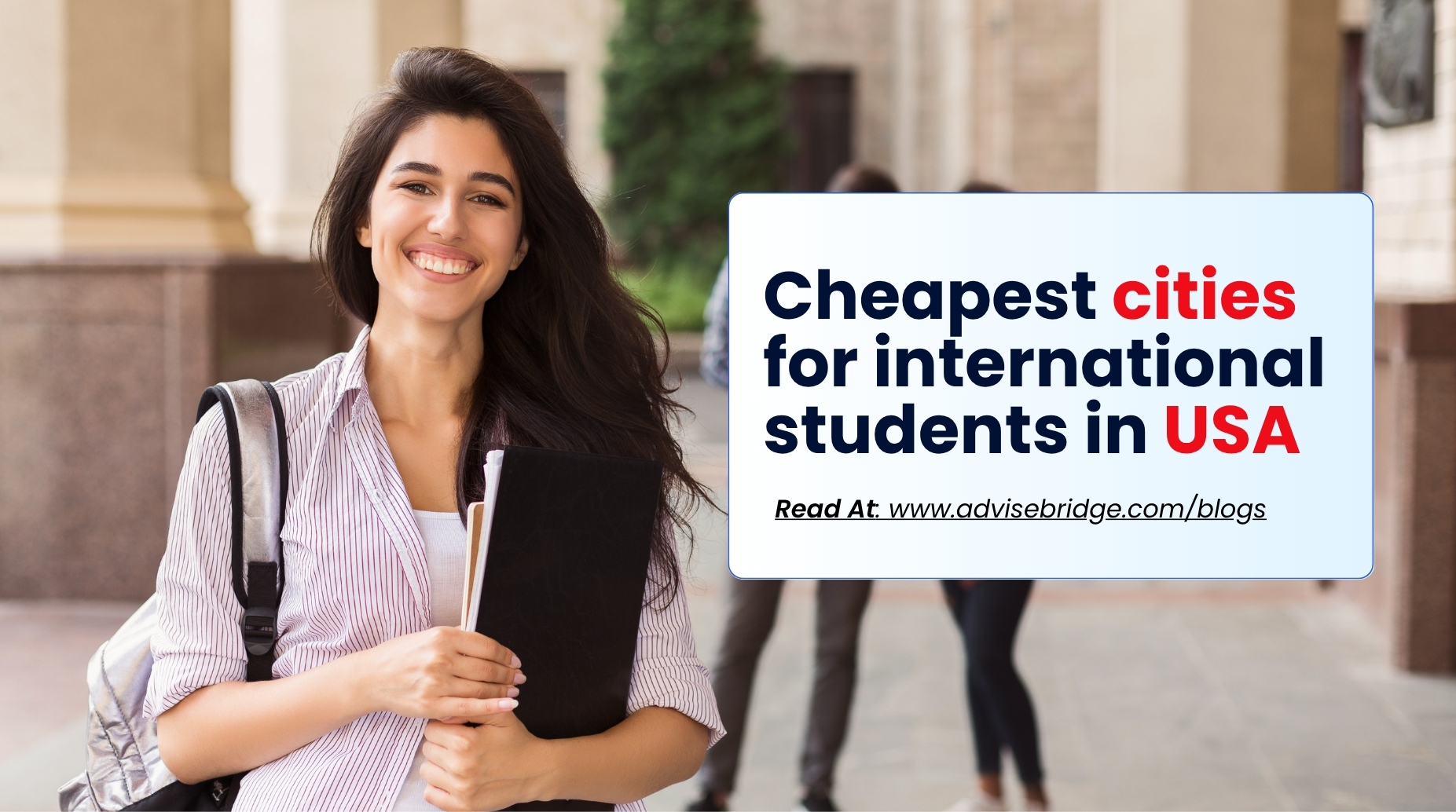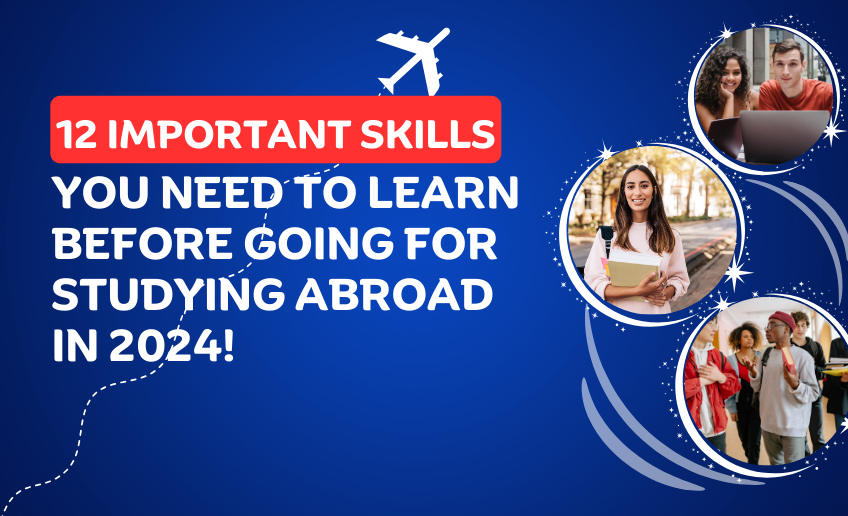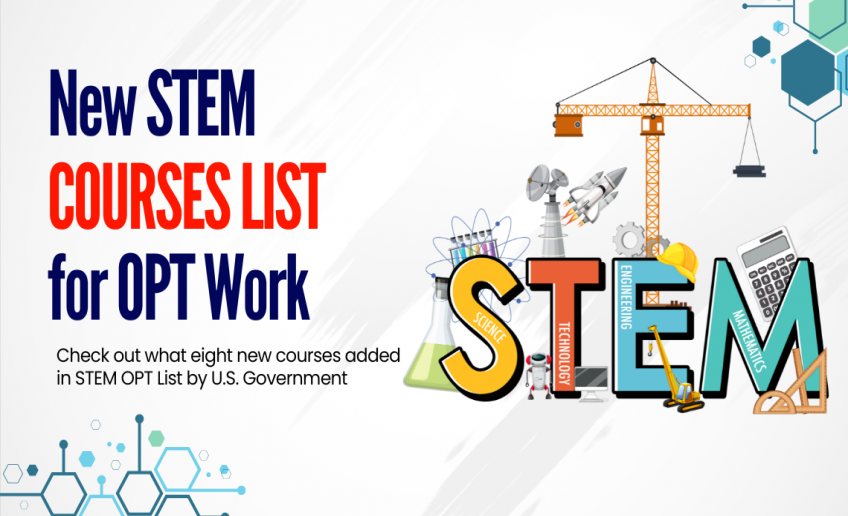You have been accepted to one of the Top University in the USA. Congratulations!! But now there is another hard milestone you have to cross, that is “F1 Visa Interview”. The F1 student visa interview is a crucial step in your journey. This interview is an opportunity for you to showcase your genuine intent and readiness to be an international student.
But how do we know what to expect, what to answer or what sorts of information we need to prepare to significantly increase your chances of securing your F1 student visa. Well, in this comprehensive guide, we will walk you through the common F1 visa interview questions, provide insights and tips to help you navigate the process with confidence, and ensure that your American educational dream becomes a reality.
What to Expect During Your F1 Visa Interview?
The F1 visa interview is a conversation between you and a consular officer at the US embassy or consulate in your country. The purpose of this interview is to determine your eligibility as a student and your motivation for studying in the United States. It is essential to familiarize yourself with the types of questions you might face and to articulate your academic and personal goals effectively. To help you prepare, we have compiled a list of potential F1 visa interview questions and answers that you can anticipate during your interview. It is also recommended to visit the website of the U.S. Department of State for additional information regarding F1 student visas.
How to Dress for Your F1 Visa Interview?
Dressing appropriately for your F1 visa interview is not just about making a good first impression; it is also about reflecting your seriousness and professionalism towards your educational journey in the United States.
When deciding what to wear, it is best to opt for formal attire that exudes confidence and professionalism. For men, a well-fitted suit or a combination of a dress shirt with formal trousers is appropriate. Adding a tie can enhance your professional appearance. Women can choose a business suit, pantsuit, or a conservative dress.
It is important to ensure that your attire is elegant and professional, avoiding anything too flashy. Stick to muted colors like black, navy blue, or grey, as they convey a sense of seriousness. When it comes to accessories, keep them minimal and understated. For men, a watch and a belt that matches your shoes are sufficient.
Women should opt for minimal jewelry, such as small earrings or a simple necklace, to avoid distractions. Footwear should be formal, clean, and polished. Closed-toe shoes for women and dress shoes for men are recommended. Grooming is key, so ensure that your hair is neatly styled.
Men should be clean-shaven or have well-groomed facial hair. Women should opt for a simple hairstyle and minimal, natural-looking makeup. If you choose to wear a fragrance, ensure it is light and not overpowering. Personal hygiene is crucial, so make sure your nails are clean and trimmed.
Additionally, ensure that your clothes are ironed and free of any stains or odors. While it is important to dress formally, it is equally important to be comfortable. Being at ease can help you stay calm and focused during the interview.
Documents You Need for the F1 Visa Interview
Preparing for your F1 visa interview requires organizing and presenting the necessary documents to demonstrate your eligibility and readiness for studying in the United States. These documents play a vital role in showcasing your academic qualifications, financial stability, and intent to return to your home country after completing your studies. Here is a comprehensive list of the documents you should bring to your F1 visa interview:
- Valid Passport: Your passport should be valid for at least six months beyond your intended stay in the United States.
- Nonimmigrant Visa Application, Form DS-160: This form must be completed and submitted online before your interview.
- Certificate of Eligibility for Nonimmigrant Student Status (Form I-20): This document will be provided by the US university or college you plan to attend. It verifies your acceptance and enrollment in an academic program.
- Photo: You will need a recent passport-sized photograph that meets the specific requirements outlined by the US embassy or consulate.
- Academic Documentation: This includes your transcripts, diplomas, degrees, or certificates from previous educational institutions. You should also bring standardized test scores, such as the SAT, ACT, or TOEFL, if applicable.
- Evidence of Sufficient Funds: You must provide documents that demonstrate your financial ability to cover the cost of tuition, living expenses, and other related expenses while studying in the United States. This may include bank statements, sponsorship letters, scholarship awards, or any other evidence of financial support.
- SEVIS Fee Receipt: The SEVIS fee is a mandatory fee paid to the US Department of Homeland Security. You must provide the receipt as proof of payment.
- Ties to Your Home Country: Documents that prove your intent to return to your home country after completing your studies in the United States. This may include property ownership, employment offers, family ties, or any other commitments that demonstrate your connection to your home country.
- Sponsorship Documents: If you have a sponsor who will be financially supporting your education, you should provide documents that verify their ability to fulfill their sponsorship obligations. This may include bank statements, employment verification letters, or any other relevant financial documents.
- Interview Appointment Letter: You should bring a copy of the appointment letter that confirms the date, time, and location of your visa interview.
- Additional Photos: It is always a good idea to bring extra passport-sized photos in case they are needed for any additional documentation.
Organizing these documents in a clear and accessible manner can help make your visa interview process smoother and more efficient. It is important to have all the necessary documents ready for presentation to the consular officer during your interview. By being prepared, organized, and thorough, you can demonstrate your eligibility and readiness to study in the United States.
Common Types of Student Immigration Interview Questions
The purpose of the F1 visa interview questions is to assess your eligibility as a student and to determine your motivation for studying in the United States. The questions asked during the interview will generally fall into one of the following categories: study plans, university choice, academic capability, financial status, health insurance and plans after graduation. Let's take a closer look at the F1 visa interview questions and answers for each category.
Study Plans
1. Why do you want to study in the US?
Emphasize the unique educational opportunities in the US, such as the quality of education, practical learning experiences, and the multicultural environment.
Example Answer: "I wish to study in the US primarily because of its world-renowned academic excellence, particularly in [Your Field of Study]. US universities offer a blend of theoretical and practical learning that is essential for my field. Additionally, the diverse and multicultural campus environment in the US will provide me with global perspectives and enhance my interpersonal skills. This combination of high-quality education and a holistic learning approach is something that I find unique to the US educational system and aligns perfectly with my academic and professional aspirations."
2. Why can't you continue your education in your home country?
Acknowledge the quality of education available in your home country but emphasize the unique aspects of the US program. This could include advanced research opportunities, practical training, global exposure, or specific courses that align with your career goals. Explain how these aspects are either not available or not at the same level in your home country.
3. What are you planning to study?
Clearly articulate your chosen field of study and how it aligns with your long-term career goals. Emphasize how studying this particular program in the US will provide you with a unique educational experience that is either unavailable or not as comprehensive in your home country.
Example Answer: "I am planning to study [Your Major] at [University Name]. My decision to pursue this field stems from my deep interest in [specific aspect] and its potential impact on [specific area]. While my home country offers quality education in many areas, the US is renowned for its cutting-edge research and practical training opportunities in [Your Major]. This program, in particular, offers specialized courses and hands-on experience that are crucial for my aspiration to become a [Your Future Goal], a field that is still in its nascent stages in my home country."
4. Have you been to the United States before?
Be honest about your travel history. If you have visited the US before, briefly mention the purpose of your visit. If not, express your enthusiasm about the opportunity to experience the US culture and educational environment for the first time.
5. Who is your current employer? What do you do?
Provide a brief overview of your current employment, focusing on how your job responsibilities and experiences have motivated or prepared you for the program you intend to study in the US.
Example Answer: "I am currently employed at [Your Employer's Name] in [Your Country], where I work as a [Your Job Title]. My role primarily involves [briefly describe your job responsibilities]. This experience has been instrumental in shaping my understanding of the practical applications of [Your Field of Study] and has further fueled my passion for pursuing advanced studies in this field. It has also highlighted the need for advanced skills and knowledge that I believe the program in the US will provide, enabling me to contribute more significantly to my field upon my return."
6. Where did you go to school before now?
Mention your previous educational institutions, focusing on how they have laid a foundation for your further studies in the US. Highlight any significant achievements or relevant coursework that has prepared you for the program you are applying to.
Example Answer: "I completed my [Previous Degree] from [Your College/University Name] in [Your Country]. During my time there, I was deeply involved in [mention any relevant coursework, projects, or extracurricular activities]. This experience not only solidified my foundational knowledge in [Your Field of Study] but also sparked my interest in [specific aspect related to your US program]. My education in [Your Country] has been enriching and instrumental in shaping my academic journey, and I am now looking forward to building upon this foundation with the specialized and diverse educational approaches offered in the US."
7. How will this study program relate to your past work or studies?
Draw a clear connection between your past work or studies and the program you wish to pursue. Explain how your previous experiences have led you to this particular field of study and how the program will help you build upon your existing knowledge and skills.
Example Answer: "The program I intend to pursue in the US is a natural progression of my past studies and work experience. During my [Previous Degree/Studies], I focused on [mention specific subjects or areas of study], which laid the groundwork for my understanding of [Your Field of Study]. In my current role as a [Your Job Title], I have been able to apply and expand upon this knowledge, particularly in areas of [mention specific skills or projects related to your job]. The US study program, with its emphasis on [mention specific aspects of the US program], will enable me to delve deeper into [specific areas of interest], which directly relates to and enhances both my academic background and professional expertise."
8. What will you specialize in for your degree?
Be specific about your area of specialization within your chosen field of study. Explain why you are interested in this specialization and how it aligns with your career goals or the needs of your home country.
Example Answer: "For my degree, I plan to specialize in [Your Specialization]. This specialization interests me due to the growing importance of [specific aspects] in our increasingly [specific area]. In my home country, as in many parts of the world, there is a growing need for skilled professionals in this field. Through this specialization, I aim to gain in-depth knowledge and practical skills in [mention specific aspects of the specialization]. This will not only align with my career goal of becoming a [Your Future Goal], but also enable me to contribute significantly to the [specific area] in my home country upon my return."
Why You Chose the University You Are Planning to Attend?
The interviewer will inquire about your choice of university and the reasons behind it. They want to understand your thought process, your research, and your motivations for choosing a specific institution. It is important to highlight the unique aspects of the university and how they align with your academic and professional goals.
Some Other Common University Questions and Answers:
1. Why did you choose this university?
Explain your choice by emphasizing the unique attributes of the university. Mention its renowned faculty, specific programs, research facilities, campus culture, or any other factors that influenced your decision.
Example Answer: "I chose this university because of its outstanding reputation in [Your Field of Study]. The faculty at this university includes some renowned leaders in the field whose work aligns closely with my academic interests. Additionally, the university's state-of-the-art research facilities and strong network with industry leaders provide unparalleled opportunities for practical learning and internships. I was also impressed by the university's commitment to fostering a diverse and inclusive academic community, which I believe is essential for a comprehensive learning experience. These unique attributes made this university my top choice."
2. How many different universities did you apply to?
Be honest about the number of applications you submitted. It is normal for students to apply to multiple universities to increase their chances of admission.
Example Answer: "I applied to [number] universities in the US. I wanted to explore a range of options and maximize my chances of being accepted into a program that aligns with my academic and professional goals."
3. Where is your school located?
Simply state the city or town where the institution is located. You can also briefly mention a fact or two about the location to show that you have done your research.
Example Answer: "My school is located in [City Name]. This city is known for its [mention a unique aspect, such as cultural attractions, industry presence, or academic reputation]. I am excited about the opportunity to live and study in such a dynamic and intellectually stimulating environment."
4. How long are you planning to stay in the United States?
Make it clear that your stay is tied to your educational program, showing your intention to comply with visa regulations.
Example Answer: "I plan to stay in the United States for the duration of my academic program, which is [length of the program]. Post-graduation, depending on the opportunities available, I may consider applying for Optional Practical Training (OPT) to gain practical experience in my field for up to one year. My primary goal, however, is to complete my education and then apply the knowledge and skills I acquire in the US back in my home country."
By preparing thoughtful and well-reasoned answers to these common F1 visa interview questions, you can demonstrate your genuine interest in studying in the United States and increase your chances of securing your F1 student visa. Remember to be confident, articulate, and genuine in your responses. Good luck with your F1 visa interview!
For any queries and guidance AdviseBridge is always there for your assistance. Please feel FREE to reach out to us about Interview tips, course selection, scholarship guidance, accommodation etc.







